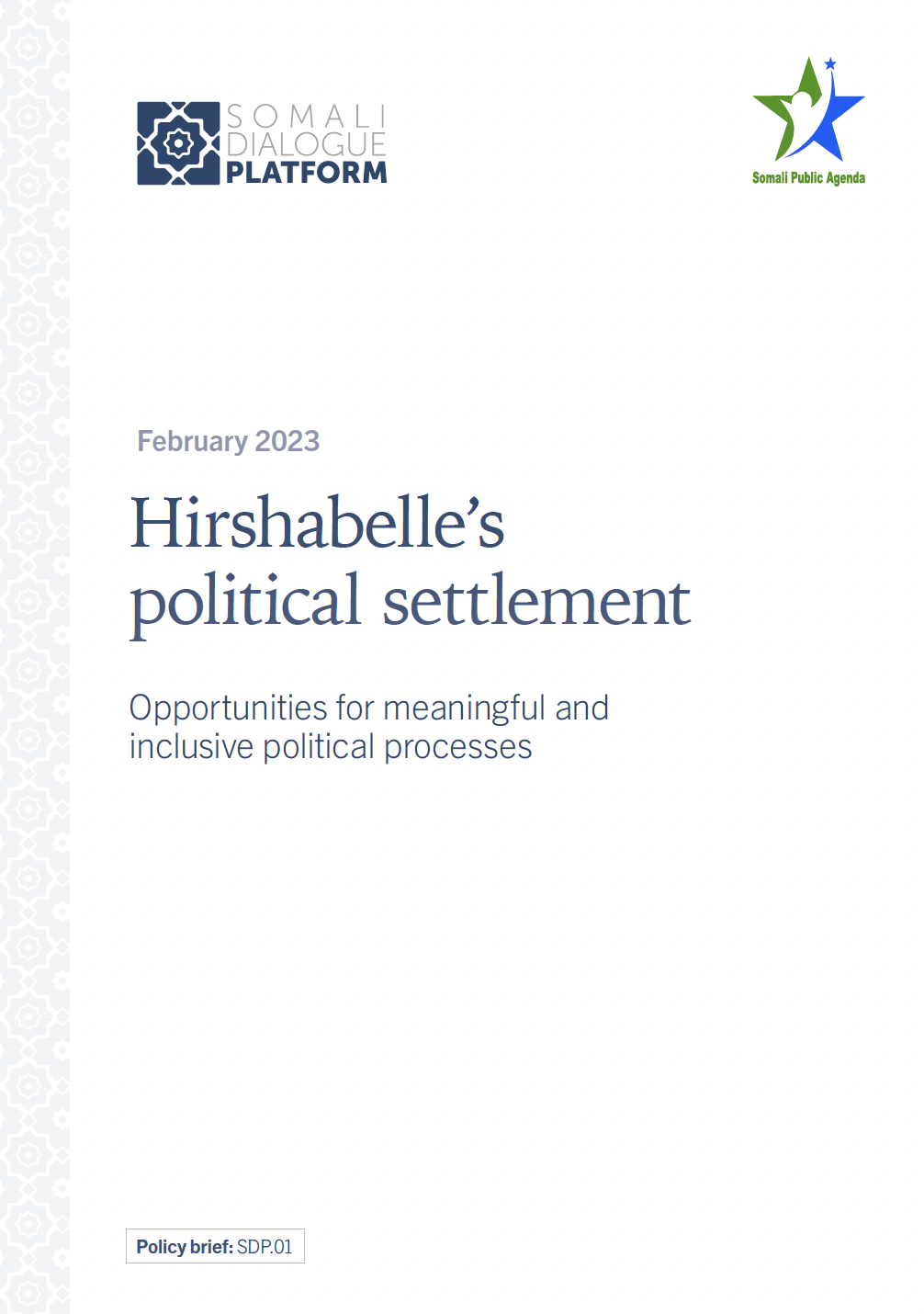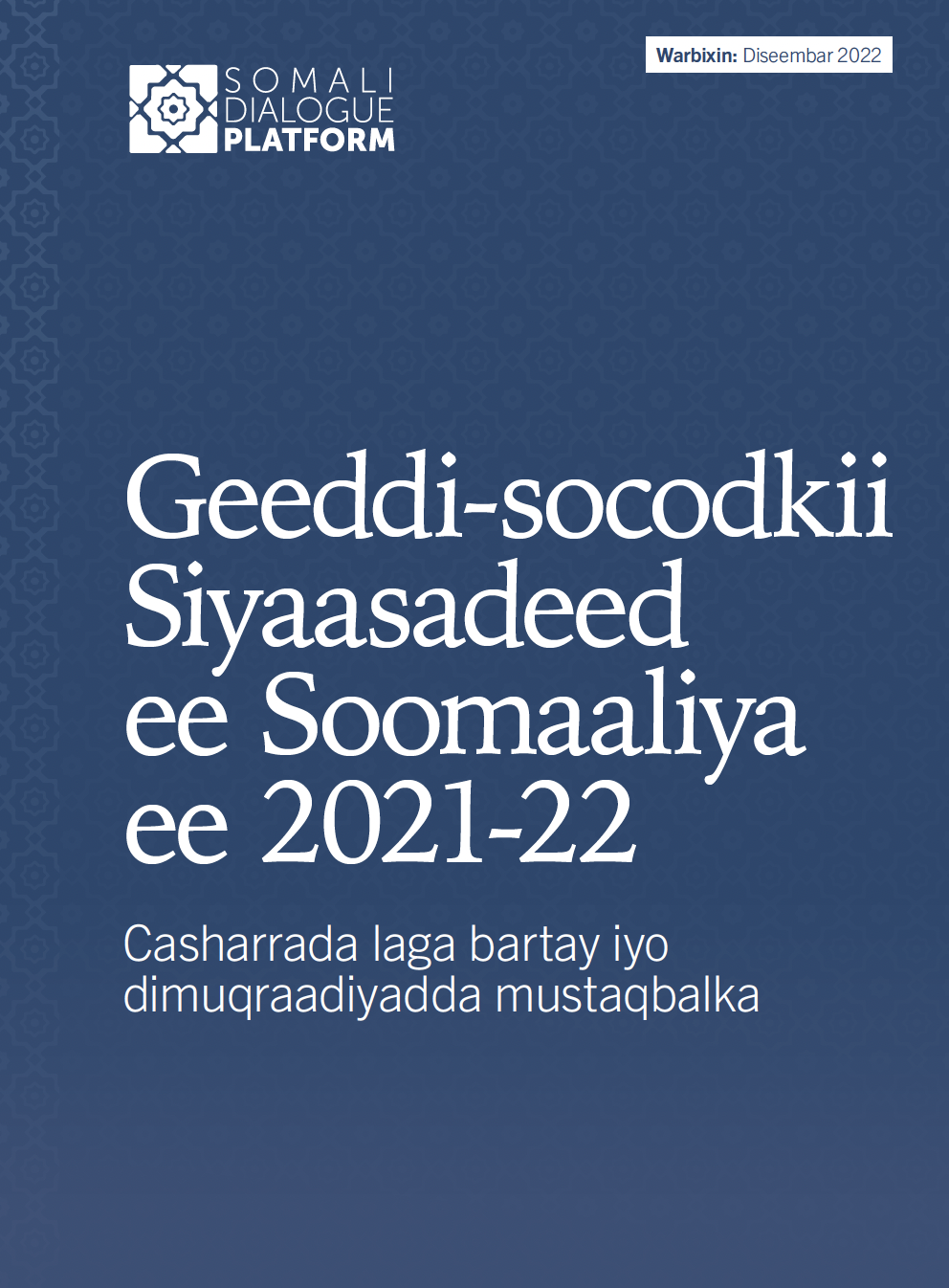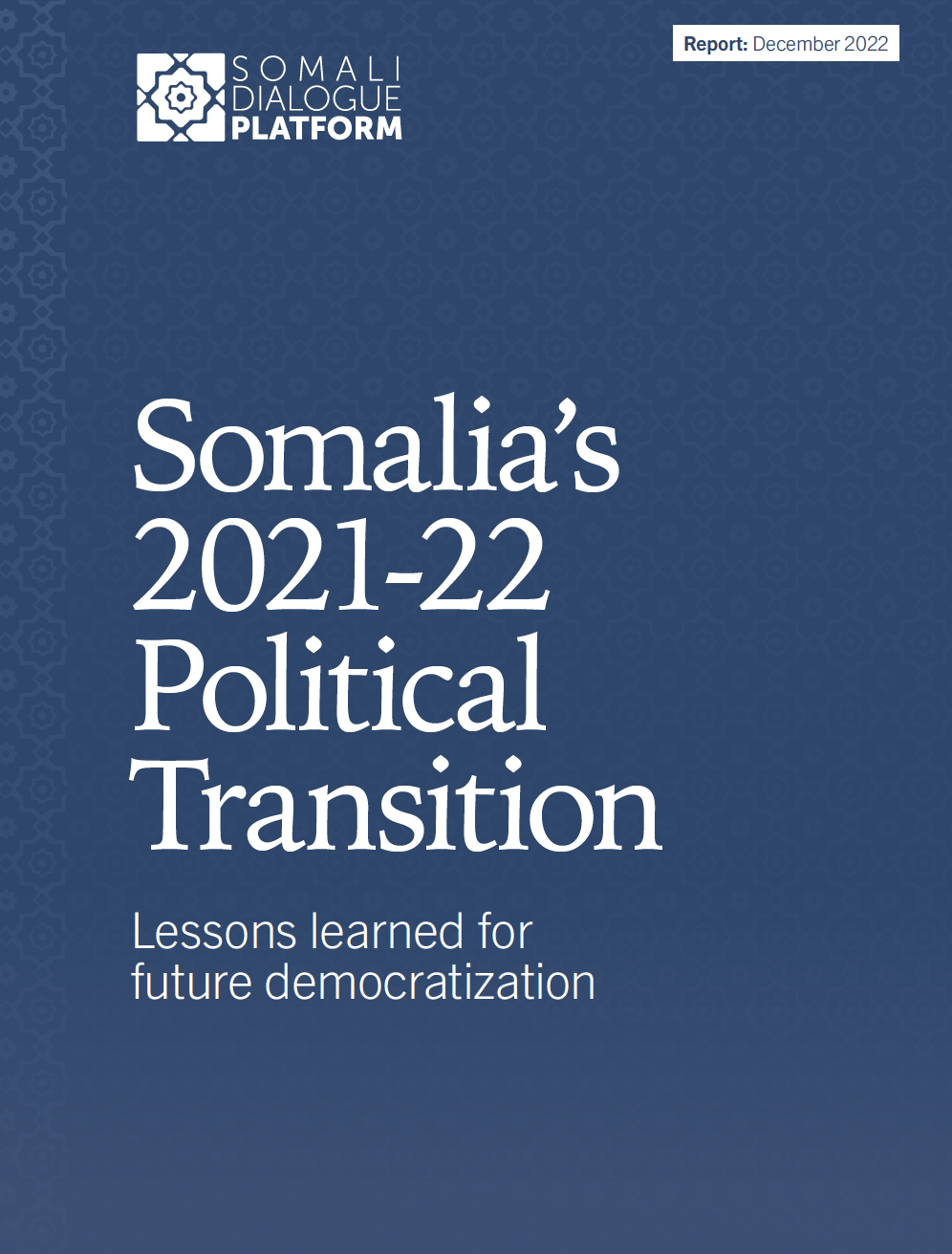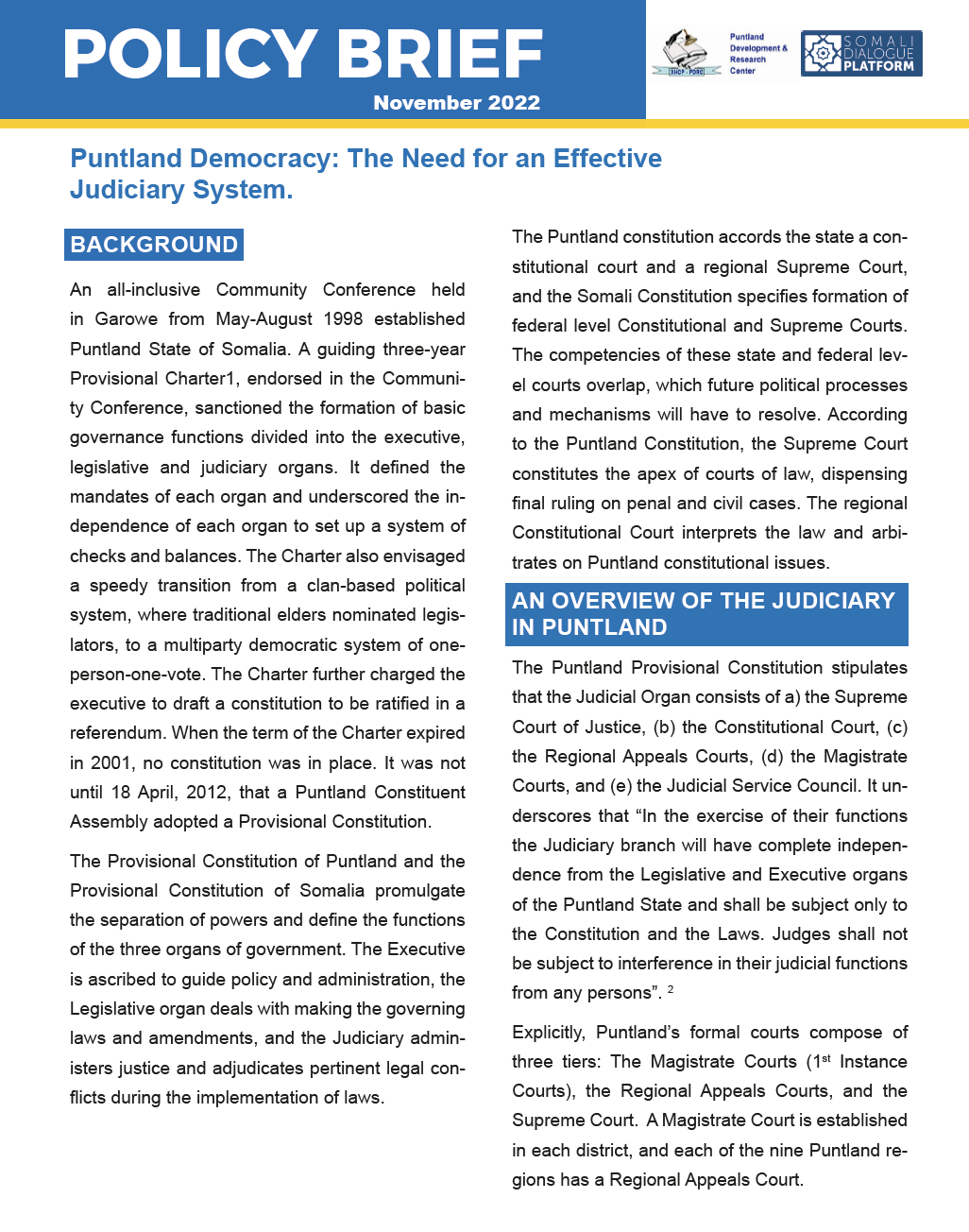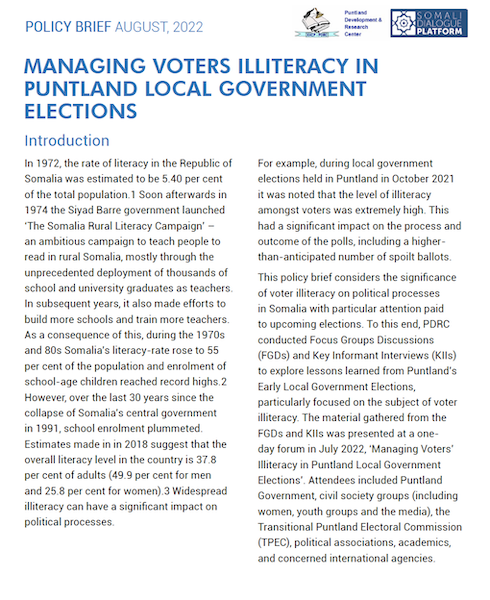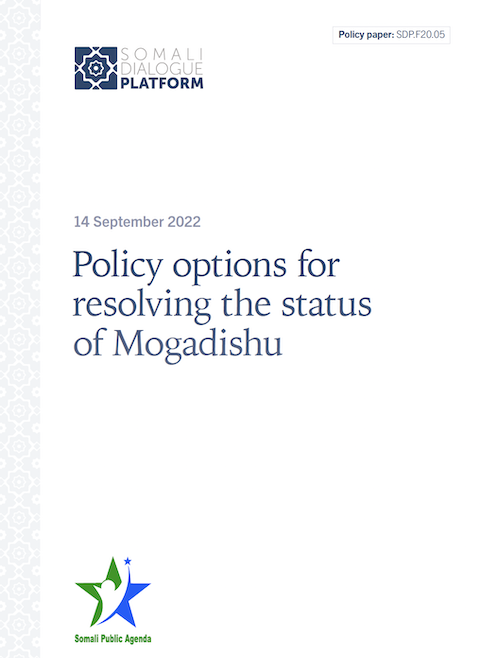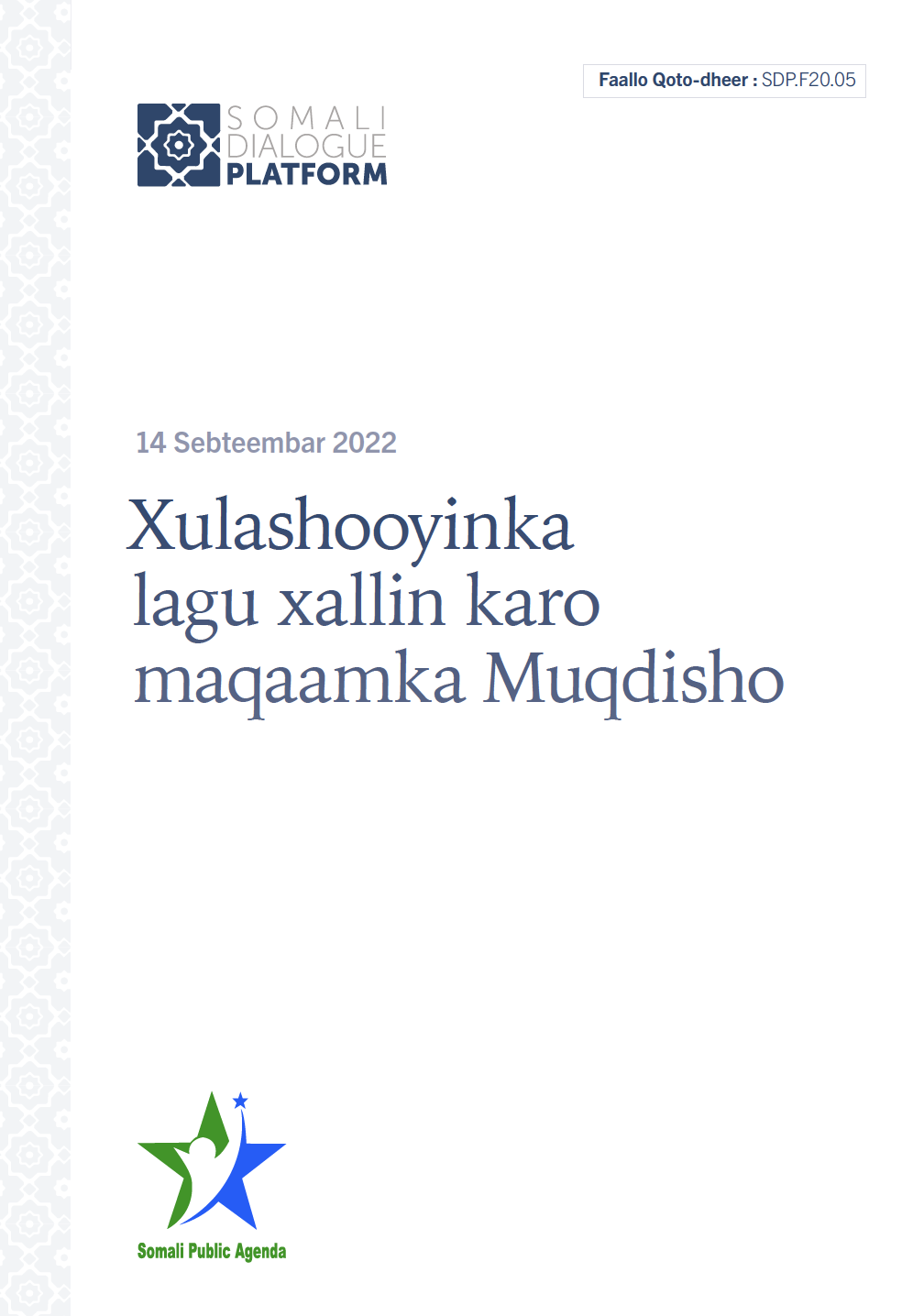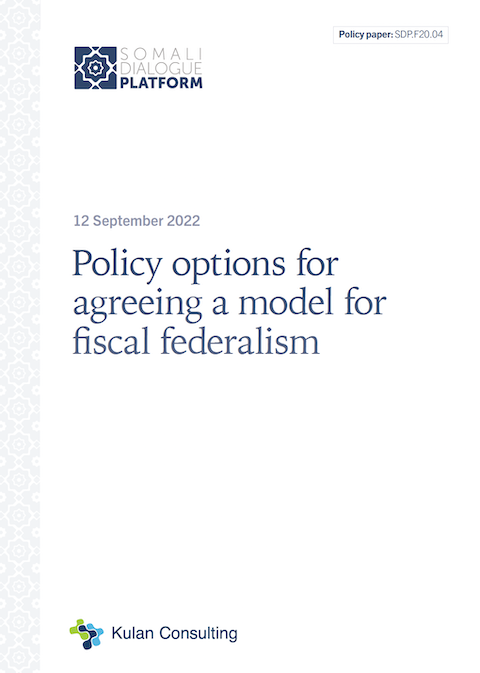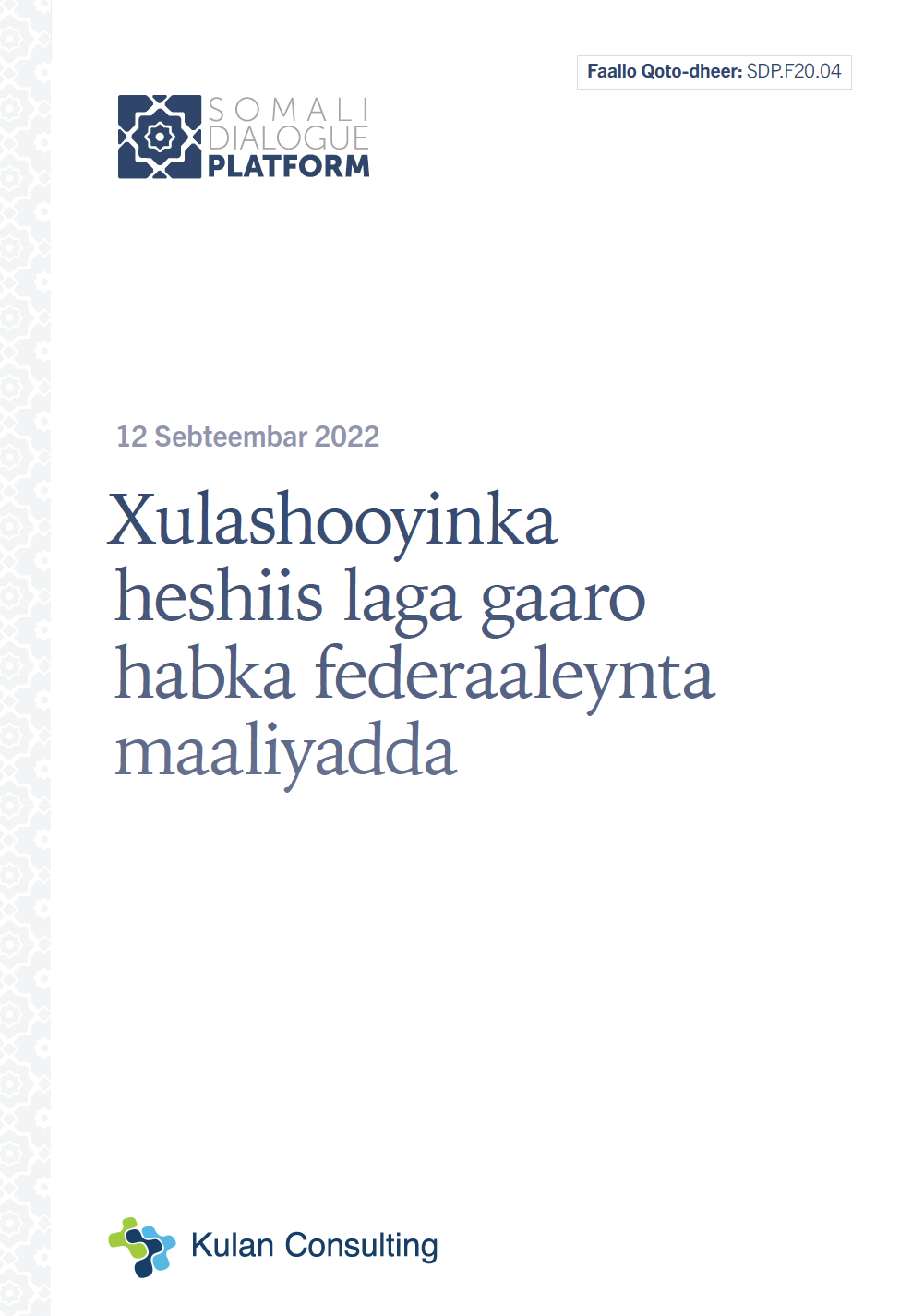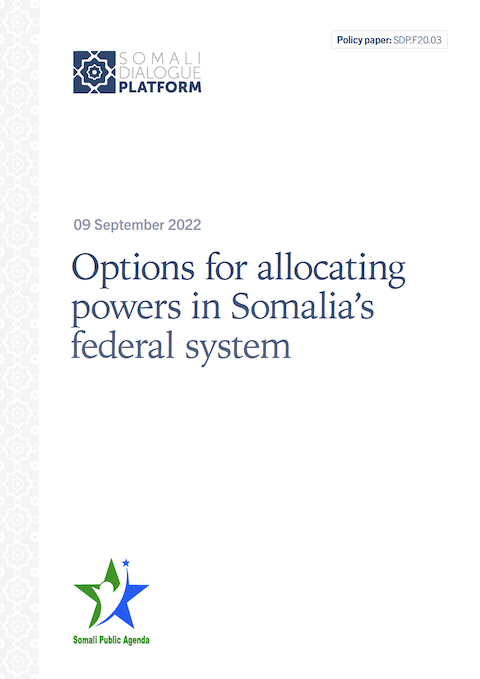Overview: Hirshabelle’s volatile political settlement Hirshabelle has been the site of continued political instability since its hasty formation as a Federal Member State (FMS) in October 2016, combining the two regions of Hiiraan and Middle Shabelle. Throughout the process,…
RVI publishes books, research reports, research papers, briefings and meeting reports in a range of formats. Publications cover policy, research, arts, culture and local knowledge in the countries of eastern and central Africa. Research publications—books, reports and papers—are peer-reviewed. Some RVI publications are also available in French and/or Arabic.
The RVI is a signatory of the Budapest Open Access Initiative (2001); all publications are free for download in PDF format under Creative Commons licences. The views expressed in books and reports published by the RVI are those of the authors, not the Institute.
SEARCH
PUBLICATION TYPE
LANGUAGE
REGION
COUNTRY
HORDHAC Tan iyo 2012-kii, markii Dowladda Federaalka Soomaaliya ay beddeshay Dowladdii Federaalka Kumeelgaarka ahayd, Soomaaliya waxa ay isku dayday in ay ballaariso hannaanka lagusoo xulo hoggaanka iyadoo la aadayo nidaam dimoqraadi ah. Ilaa iyo hadda, horumarka laga gaaray doorasho…
OVERVIEW Since 2012, when the internationally recognized Federal Government of Somalia (FGS) replaced the Transitional Federal Government (TFG), Somalia has sought to expand its process for selecting its leaders towards more democratic forms. So far, progress towards universal suffrage…
An all-inclusive Community Conference held in Garowe from May-August 1998 established Puntland State of Somalia. A guiding three-year Provisional Charter, endorsed in the Community Conference, sanctioned the formation of basic governance functions divided into the executive, legislative and judiciary…
In 1972, the rate of literacy in the Republic of Somalia was estimated to be 5.40 per cent of the total population. Soon afterwards in 1974 the Siyad Barre government launched ‘The Somalia Rural Literacy Campaign’ – an ambitious campaign…
The unresolved status of Mogadishu is one of the key outstanding issues in Somalia’s political settlement. Since 2012, Somalia has made progress in clarifying its federal model through the establishment of Federal Member States (FMS) and efforts – albeit…
Maqaamka Muqdisho oo aan weli la xalin ayaa kamid ah arrimaha ugu muhiimsan heshiiska siyaasadda Soomaaliya. Lagasoo bilaabo sanadkii 2012, Soomaaliya waxay horumar ka samaysay in la caddeeyo nooca federaalka iyadoo la dhisay Dowlad-goboleedyo sidoo kalena la sameeyay dadaallo…
Somalia first formally adopted a federal model in 2004 with the establishment of the Transitional Federal Charter. Since then, it has been deepened and clarified with the adoption of the Provisional Federal Constitution in 2012 and the subsequent formation…
Soomaaliya ayaa markii ugu horreysay si rasmi ah u qaadatay hannaanka federaalka sannadkii 2004-tii markii la sameeyay Axdiga Federaalka Kumeelgaarka. Tan iyo markaas, dhidibada ayaa loo aasay iyadoo la qeexay markii la meel mariyay Dastuurka Federaalka Kumeelgaarka ah ee…
Somalia formally adopted a federal system in 2004 with the establishment of the Transitional Federal Government. This model became more established in 2012 with the ratification of the Provisional Federal Constitution (PFC), which clarified many critical areas of Somalia’s…
Recent Publications

Rethinking Ethiopia II: Youth and politics
February 26, 2026
Seminar report Rethinking Ethiopia, a collaborative essay competition initiative between Addis Ababa University’s Institute for Peace and Security Studies (IPSS) and the Rift Valley Institute’s (RVI) Peace Research Facility (PRF), offers a platform for Ethiopian youth to express their ideas

2025 Year in Review
February 16, 2026
The 2025 Year in Review provides an overview of the Rift Valley Institute’s work over the past year across eastern and central Africa. The report highlights RVI’s research and publication outputs, education and training activities, and public forums and convenings,

Rethinking Aid in Sudan and South Sudan
January 28, 2026
The brief draws on a joint convening held in Kampala, Uganda, in November 2025, which brought together more than 45 Sudanese and South Sudanese participants representing more than 30 grassroots organizations and international NGOs. Its primary objective is to amplify

